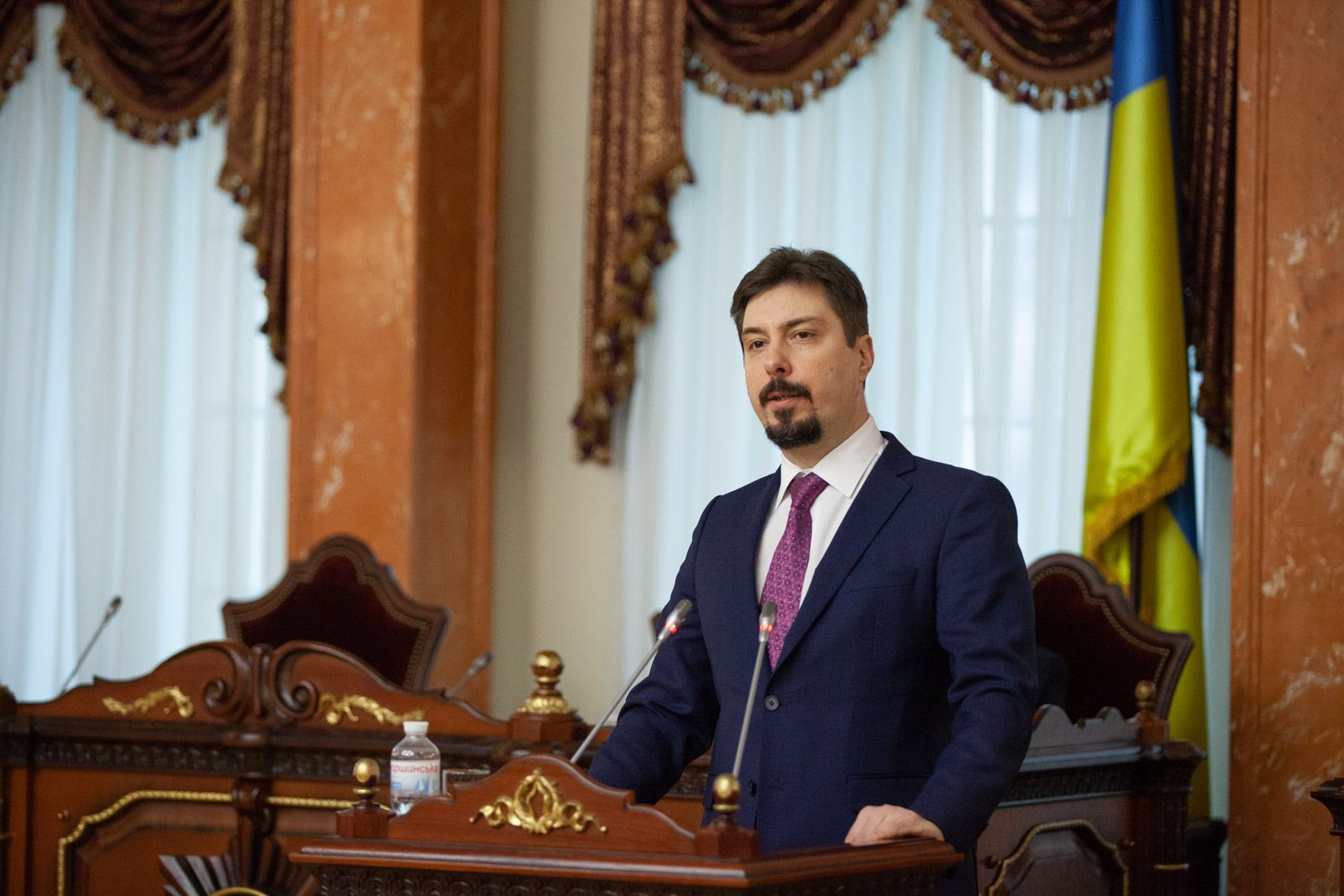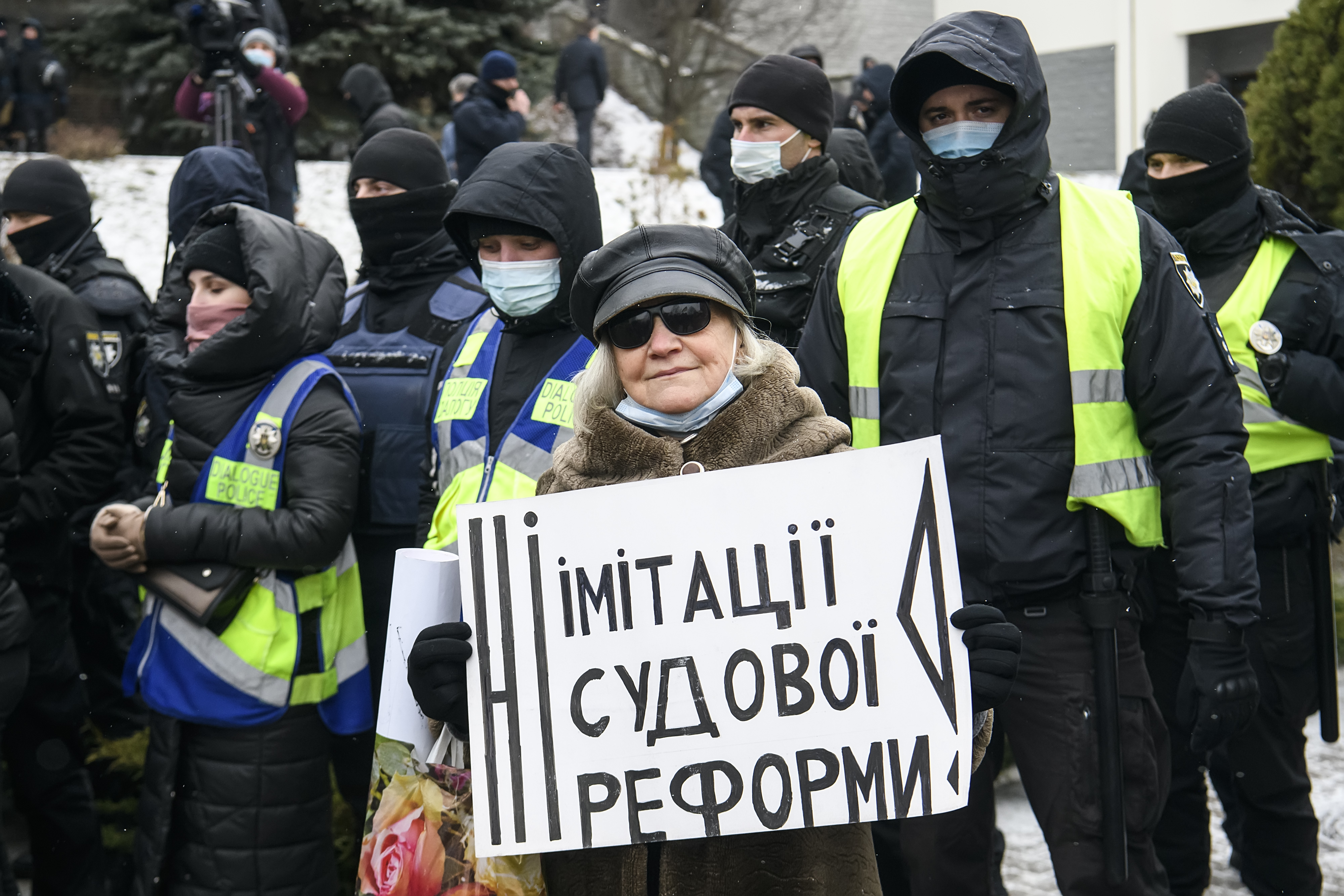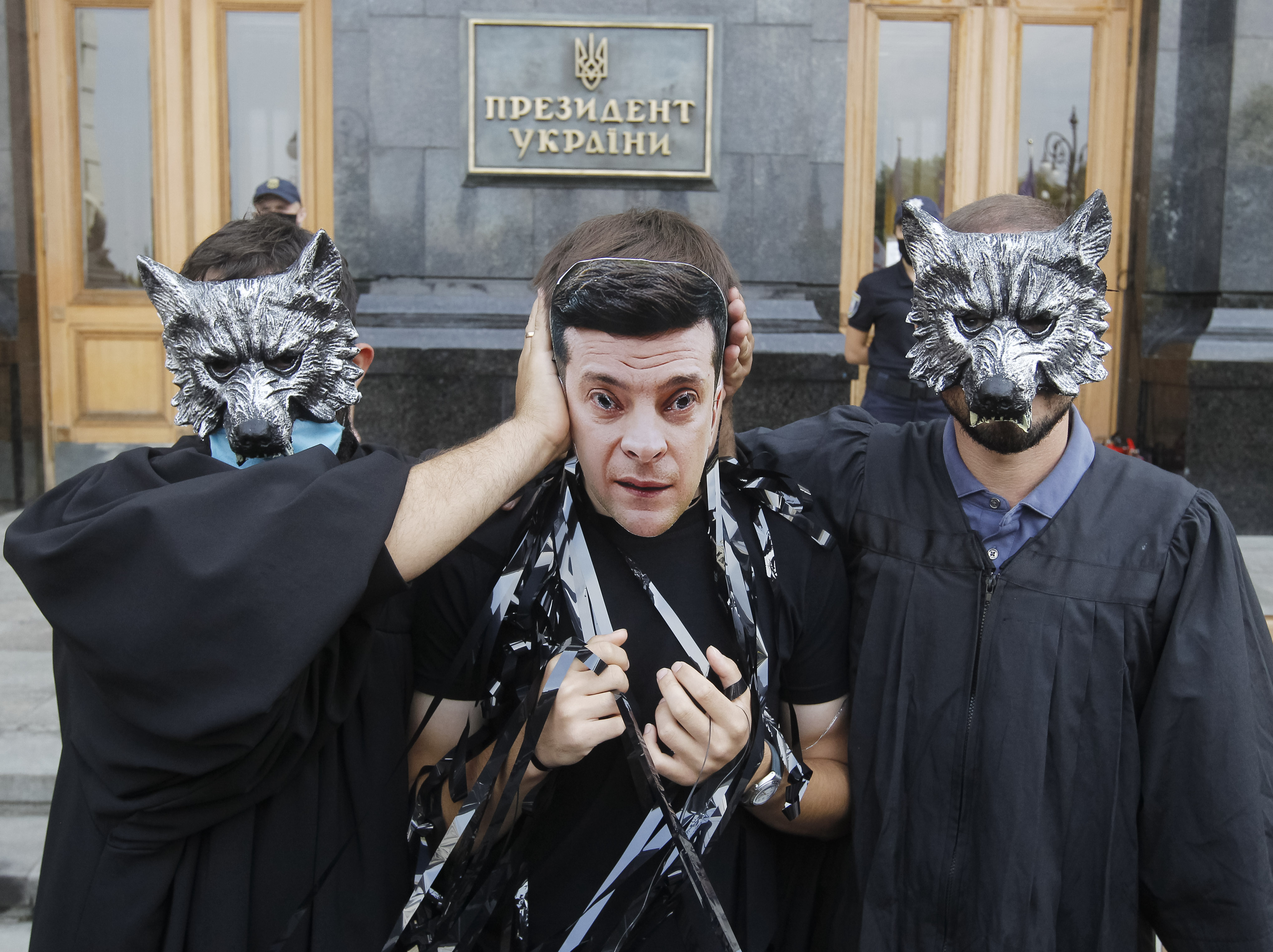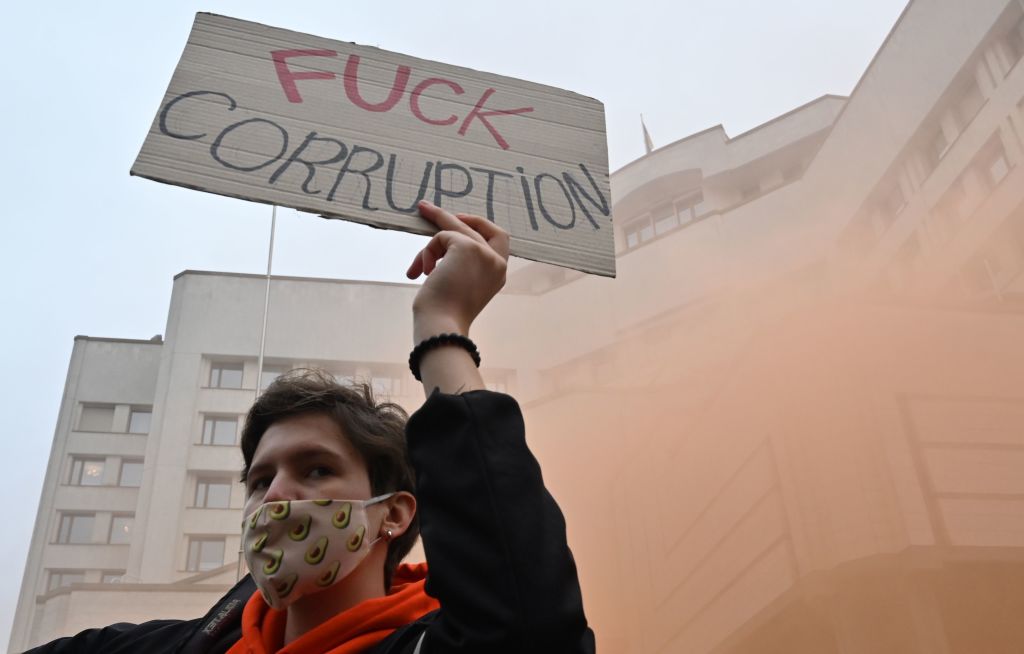Judicial reform formally completed as second top judicial body is appointed

All 16 members of the High Qualification Commission, a judicial body that vets and nominates candidates for judicial jobs, have been appointed now.
The final selection was made on June 1 by the High Council of Justice, the judiciary's main governing body. The council, which makes final decisions on hiring, firing, and punishing judges, was re-launched in 2022.
With the appointment of the two judicial bodies, Ukraine's ongoing judicial reform has been completed on paper. Now, opinions differ on whether the reform is a success.
According to the concept of the reform, new members of the High Qualification Commission and High Council of Justice are supposed to be honest, independent, and professional. They must bring fundamental change to the judiciary.
The two top judicial bodies now have a job to fill over 2,000 judicial positions.
Optimists say that the new members of the two bodies include some good candidates, while most haven't been involved in scandals so far.
But critics argue that many independent and reformist candidates for the two bodies have been rejected, while at least several tainted candidates have still managed to get top judicial jobs.
Moreover, there's little information on most of the new appointees.
Success or failure?
Mykhailo Zhernakov, head of judicial watchdog Dejure, characterized the appointments to the High Qualification Commission as a partial victory.
He said on Facebook that there is no negative information on most of the new members, and only two out of the 16 don't meet integrity standards.
However, no representatives of civil society – the most radical agents of reform – were included in the final list, Zhernakov said. The High Council of Justice rejected the most independent candidates, he added.
"The judicial community is incapable of cleansing itself and will fight for the status quo at any cost," Zhernakov said.
Judicial expert Halia Chyzhyk, whistleblower judge Larysa Golnyk, and Vitaly Tytych, ex-head of judicial watchdog Public Integrity Council, are more skeptical about the results of the reform.
"I don't know anything about most of the new members (of the High Qualification Commission)," Golnyk told the Kyiv Independent. "It appears that there will be no real reformers at the High Qualification Commission. (The authorities) appear to have bet on 'dark horses' again. I'm also concerned about the selection of two candidates who are not trusted by civil society."
Tytych, who has been rejected as a candidate for the High Qualification Commission, argued that the reform is a failure.
The selection panel claimed it would choose the best of the best candidates for the High Qualification Commission, but in reality, there is no proof of the professionalism or integrity of the new members, he added.
"I don't even know who these people are," he said.
Chyzhyk agrees with this assessment.
"The idea of the contest was to choose the best but the best were not appointed," she told the Kyiv Independent. "They were rejected at different stages of the contest."
Tainted candidates?
Dejure says that at least two of the 16 new members of the High Qualification Commission – Lyudmila Volkova and Volodymyr Luhansky - do not meet ethics and integrity standards.
Volkova and Luhansky, who did not respond to requests for comment, denied the accusations of wrongdoing during interviews as part of the contest for the High Qualification Commission.
The High Council of Justice did not respond to a request for comment.
Volkova, a former judge, has spoken out against judicial reform and issued decisions against peaceful protesters.
In 2016, Volkova was a member of a judicial self-regulation body, the Council of Judges, and considered a complaint filed by Judge Serhiy Bondarenko against his court chairman, Volodymyr Babenko.
Babenko pressured Bondarenko to make a decision that he wanted, but Bondarenko refused and recorded what he thought to be Babenko's illegal order on audio.
Volkova concluded that Babenko had not violated judicial ethics and helped him escape punishment, according to Dejure.
Bondarenko has also said that Volkova had pressured him to withdraw his complaints against Babenko and apologize to him.
Meanwhile, Babenko currently faces an arrest warrant issued by a Ukrainian court and is wanted by law enforcement in the investigation into his pressure against Bondarenko.
Another new member of the High Qualification Commission, Luhansky, has closed 54 cases against drunk drivers, citing the expiry of the statute of limitations, Dejure said. The watchdog doubts the legality of these decisions.
Luhansky is also suspected of falsifying his doctoral thesis. He claims to have received a doctor of philosophy degree in 2011, but Ukraine only introduced it in 2014, according to Dejure.
Luhansky could not recall the scientific specialization of his doctoral thesis during the interviews, and the thesis could not be found in the public domain, Dejure said.
He also visited Russia four times in 2014-2015 – after Russia launched its war against Ukraine in Crimea and Donbas, according to the watchdog.
A third new member of the High Qualification Commission is Ruslan Melnyk, a former employee of the internal audit unit at the National Anti-Corruption Bureau of Ukraine (NABU).
Civic watchdogs have not identified him as violating integrity standards.
However, Artem Krykun-Trush, a former NABU detective, has accused Melnyk and his former boss at the NABU, Roman Osypchuk, of nepotism and a conflict of interest.
Krykun-Trush claimed that Osypchuk had hired Melnyk because the latter used to be his teacher and that Melnyk had allegedly ghostwritten Osypchuk's dissertation.
Melnyk denied the accusations in a response to the Kyiv Independent.
Former top investigator Sergii Gorbatuk has also criticized the new members of the High Qualification Commission who used to be judges at commercial courts under ex-President Viktor Yanukovych. These are Oleksiy Omelyan and Roman Kydysyuk.
Gorbatuk has investigated a corruption and obstruction of justice scheme spearheaded by Viktor Tatkov, former head of the High Commercial Court, and Tatkov's deputy Artur Yemelyanov.
All judges of commercial courts knew about Tatkov's corruption and his illegal orders, but none of them spoke about it or gave any testimony about it, Gorbatuk said.
The judges denied the accusations of wrongdoing during the interviews.
Other members
The other new members of the High Qualification Commission include – Nadia Kobetska, a law professor at the Subcarpathian National University; Yaroslav Dukh, who used to work at the National Anti-Corruption Bureau of Ukraine and the National Agency for Corruption Prevention; Vitaly Hatselyuk, a scholar at the Koretsky Public Administration and Law Institute; Andriy Pasichnik, an employee of the National Agency for Corruption Prevention; Roman Sabodash, a legal scholar at the Kyiv National University, and Ruslan Sydorovych, a lawyer and former member of parliament from the Samopomich party.
The new High Qualification Commission also includes judges – Mykhailo Bohonis, Roman Ihnatov, Oleh Koliush, Serhiy Chumak, and Halyna Shevchuk.
Little information is available on most of the new members, and it is unclear why they were considered the best by the selection panel and the High Council of Justice.
The High Council of Justice has also been criticized for rejecting several candidates who have been praised by civil society and described as independent and professional.
These include legal scholar Mykola Khavronyuk, Andriy Kozlov, a former reformist member of the High Qualification Commission, Taras Shepel, a former member of the judicial watchdog Public Integrity Council, and Volodymyr Rysenko, a lawyer.
"It's a revealing sign that the High Council of Justice didn't choose Khavronyuk, Kozlov, Shepel, and Rysenko, whose integrity and professionalism are well-known," Golnyk told the Kyiv Independent.
At earlier stages of the contest, several other candidates with the reputation of independence and integrity had been rejected.
Among them are Tytych, a former head of the Public Integrity Council, Gorbatuk, an outspoken former investigator at the prosecutor's office, Andriy Boyko, a former reformist member of the High Council of Justice, Lyubomyr Vynar, a whistleblower judge, and legal scholar Mykola Siry.
The rejected candidates include Roman Brehei, a judge known for his independent stance and support for judicial reform, and Maryna Solovyova, a former commission member who identified judges illegally cracking down on protesters during the 2014 EuroMaidan Revolution.














